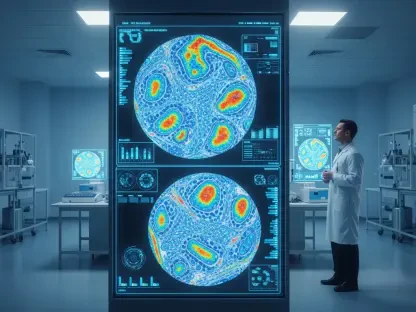The integration of technology into healthcare has opened new frontiers, with telehealth nursing standing at the forefront. This innovative approach fuses traditional nursing skills with digital platforms, allowing patient care to be delivered remotely through video calls, phone consultations, and online portals. Emerging as a viable solution, especially in the aftermath of global health crises, telehealth nursing has become crucial in addressing geographical barriers and resource limitations in healthcare. Not only does it enable access to healthcare for underserved populations, but it also provides a flexible platform for ongoing patient monitoring and care coordination. The question now is whether telehealth nursing will solidify itself as a staple in healthcare practices or remain an auxiliary service.
Understanding the Growth and Impact of Telehealth Nursing
The rapid expansion of telehealth nursing is a testament to its potential impact on how healthcare is delivered. It is more than a technological advancement; it signifies a shift in the paradigm of patient care. The trend has seen substantial growth, with statistics showing an increase in the adoption of telehealth practices among nurses. By 2025, the usage has grown to become a significant component of emergency care and other healthcare services. This rise, observed even before the global pandemic, highlights its vital role in emergency services and routine care.
Telehealth offers a unique intersection of healthcare delivery that is both cost-effective and accessible. By reducing the need for physical travel, it conserves resources for both patients and healthcare institutions. Moreover, it supports the provision of continuous care, crucial for managing chronic conditions such as diabetes or hypertension. By facilitating remote monitoring, telehealth allows for timely interventions, reducing the burden on emergent care facilities and ultimately enhancing patient outcomes. Its influence reaches into various aspects of healthcare, seamlessly integrating a new approach that supports traditional practices rather than replacing them entirely.
Essential Educational Pathways and Training
The journey into telehealth nursing necessitates a thorough educational foundation similar to traditional nursing qualifications. Starting with a basic nursing education, typically through an ADN or BSN, aspiring telehealth nurses are prepared with core competencies in clinical skills, patient interaction, and healthcare management. A BSN, in particular, is favored due to its comprehensive training in leadership, critical thinking, and communication, all essential attributes in providing remote care.
Certification and licensure form the backbone of a telehealth nurse’s professional journey. The National Council Licensure Examination for Registered Nurses remains a critical stepping stone, alongside fulfilling any state-specific requirements. As telehealth nursing requires proficiency beyond clinical acumen, specialized training programs have emerged. These range from core competency certifications offered by recognized health organizations to university-led courses focusing on software management, virtual communication, and digital health documentation. Specialized certifications also provide a competitive edge, catering to niche areas such as mental health or chronic disease management and integrating telehealth-specific modules into traditional frameworks.
Roles and Specialized Skills in Telehealth Nursing
The role of telehealth nurses has expanded beyond traditional confines, embracing new functions that accommodate a broad spectrum of healthcare needs. Telehealth nurses are crucial in assessing symptoms, performing triage, and guiding patients to appropriate resources, filling a critical gap in healthcare delivery. This adaptability is crucial in managing chronic diseases, where continuous monitoring, patient education, and adherence reinforcement play significant roles in preventing complications. Meanwhile, telemental health services extend much-needed support to individuals facing emotional or psychological challenges, providing an accessible lifeline to populations with limited access to in-person care.
Successfully transitioning into telehealth nursing demands the acquisition of essential skills tailored to remote environments. Technology proficiency stands as a cornerstone, with nurses expected to navigate video conferencing tools, electronic health records, and remote monitoring devices seamlessly. Effective virtual communication is another pillar, necessitating the ability to conduct thorough assessments while being attuned to both verbal and nonverbal indicators. Rigorous documentation practices are indispensable, ensuring that every detail is recorded meticulously, as they often dictate the progression of patient care strategies.
Navigating Licensing, Regulations, and Work Environments
Despite the far-reaching capabilities of telehealth to transcend physical limitations, nurses must adhere to a complex tapestry of licensing and regulatory frameworks. The Nurse Licensure Compact simplifies this landscape somewhat, allowing nurses to practice across participating states with a single license. However, it remains imperative for them to be licensed in the patient’s state when offering virtual consultations. This multi-state approach demands careful navigation of regulations to ensure compliance across different jurisdictions.
Regulatory considerations extend beyond licensing, as some states impose specific training requirements tailored to telehealth practices. Compliance with the Health Insurance Portability and Accountability Act (HIPAA) is equally crucial, necessitating the use of secure, encrypted systems to safeguard patient information. Telehealth nursing’s diverse work environments offer flexibility, allowing nurses to operate not only from home but also from hospital command centers, outpatient clinics, or specialized services like crisis intervention lines. This versatility supports career growth and the pursuit of specific interests within the vast landscape of healthcare services.
Considerations for Professional Development and Future Outlook
Career advancement in telehealth nursing hinges on continuing education and professional growth. Certifications such as the Certified Professional in Telehealth offered by leading healthcare institutions elevate a nurse’s standing, ensuring they remain at the cutting edge of current practices. Continued education, increasingly accessible through online courses, provides valuable skills in remote assessment and patient safety, preparing nurses for the challenges of virtual care environments.
Looking forward, telehealth nursing is poised to establish itself as a cornerstone of patient care. It plays an essential role in expanding access to healthcare services in remote and underserved areas, optimizing chronic disease management, and enhancing healthcare equity. For nurses keen on pursuing a future in this dynamic and rapidly evolving field, investing in the required skills and staying abreast of technological advancements will be key. As the healthcare industry continues to evolve, telehealth nursing stands ready to adapt, innovate, and significantly impact the delivery of patient care.









